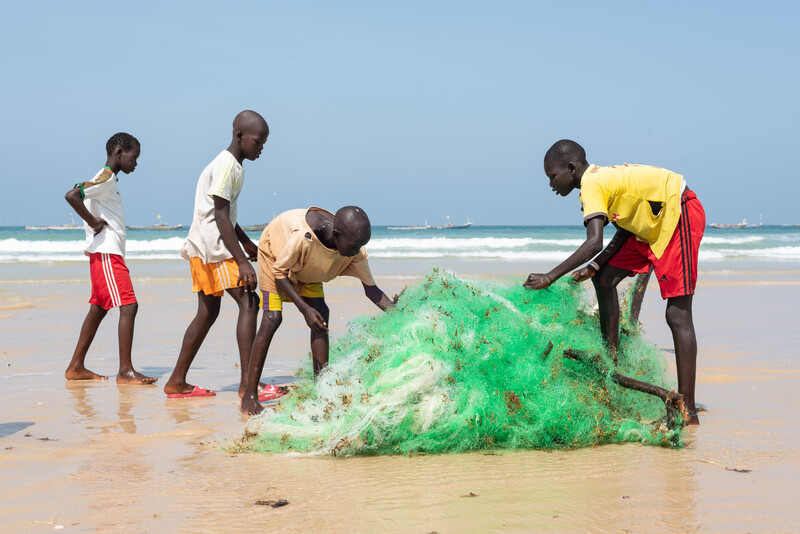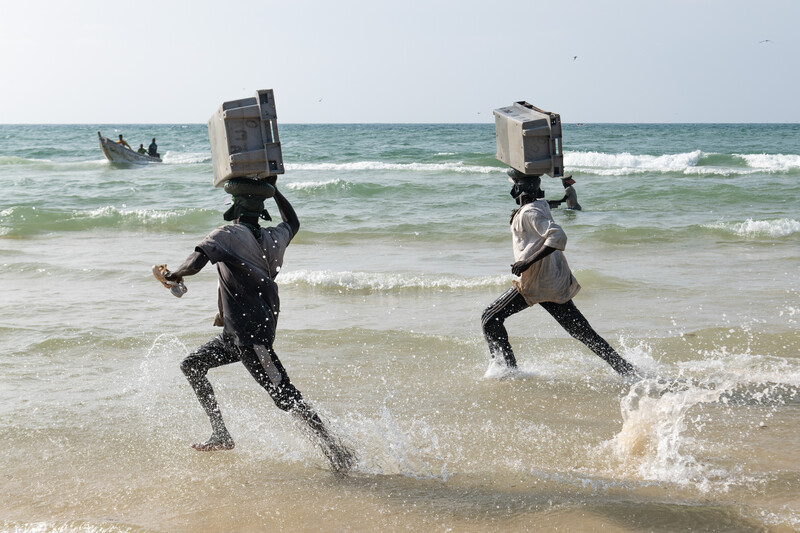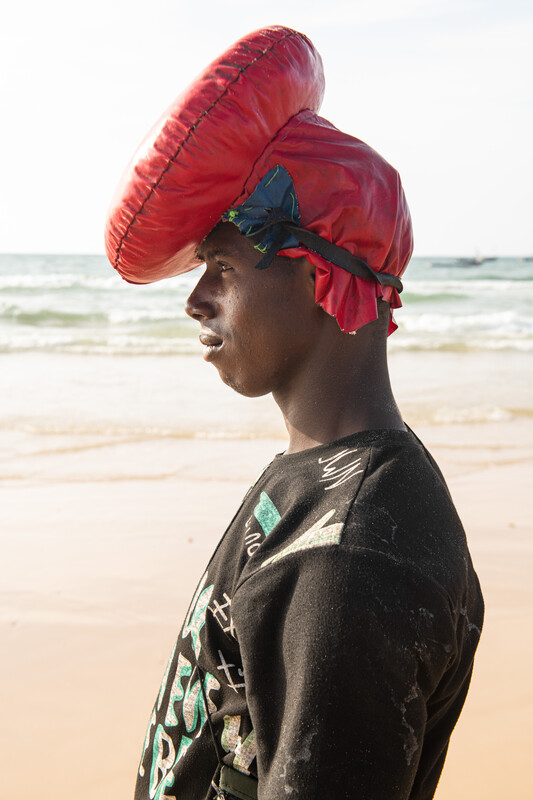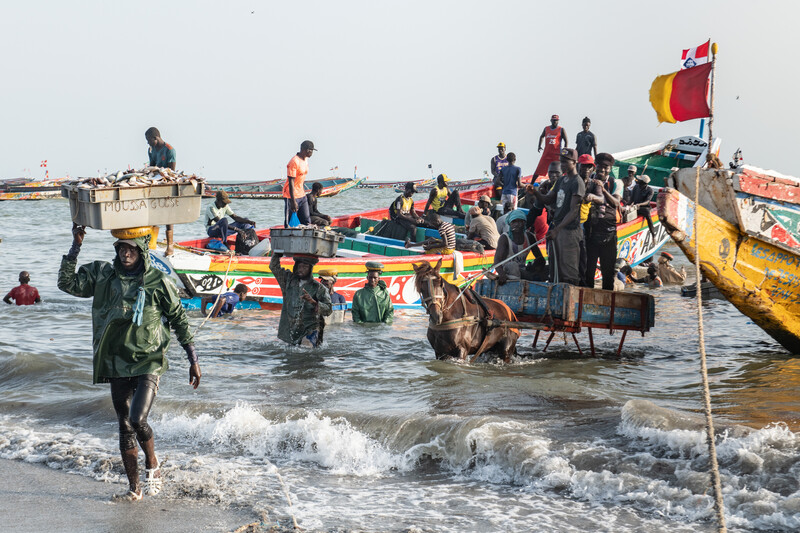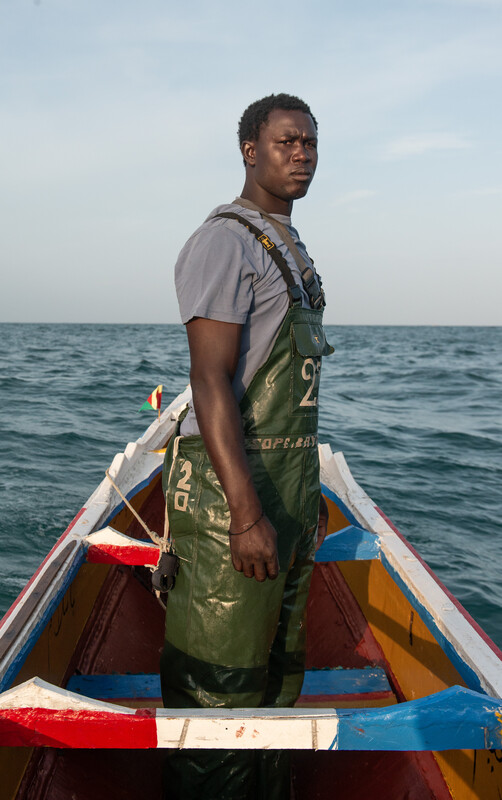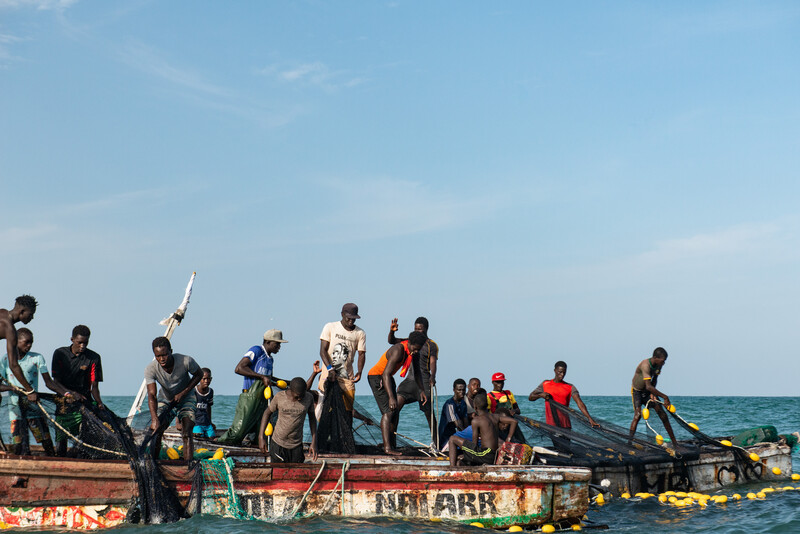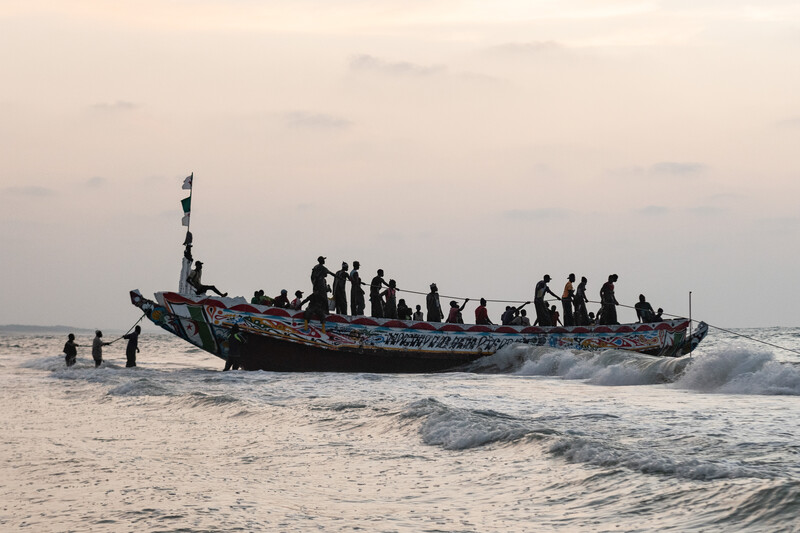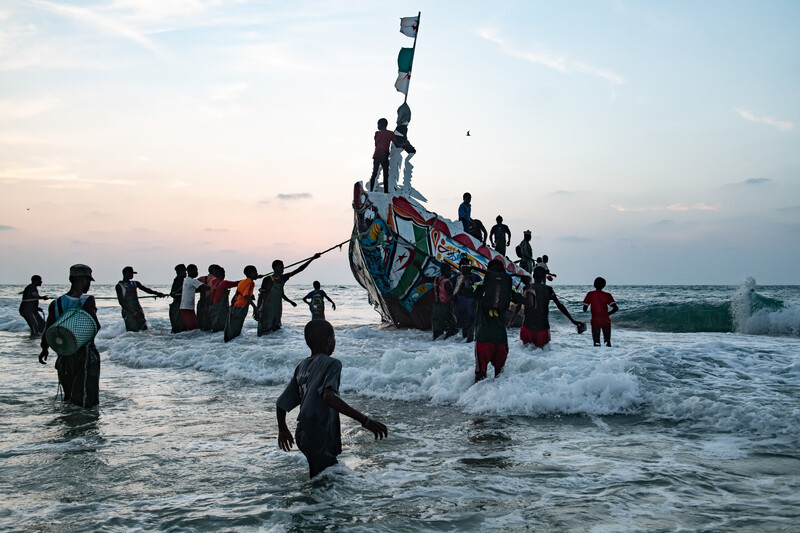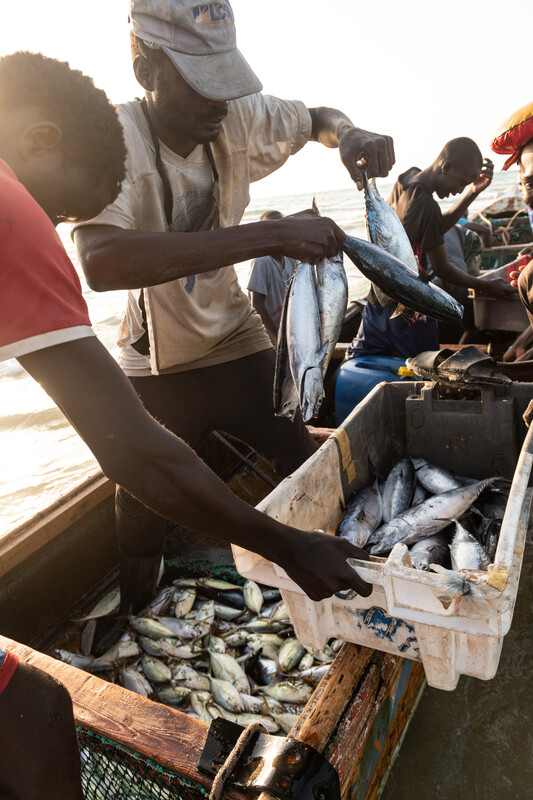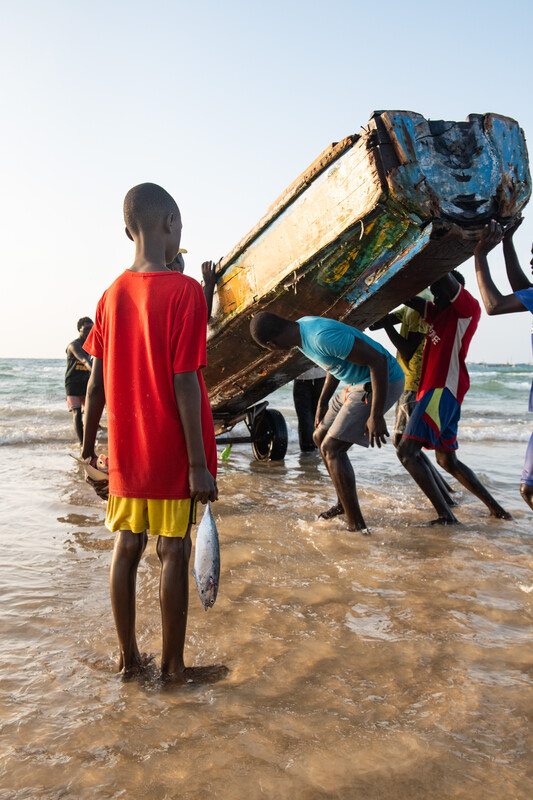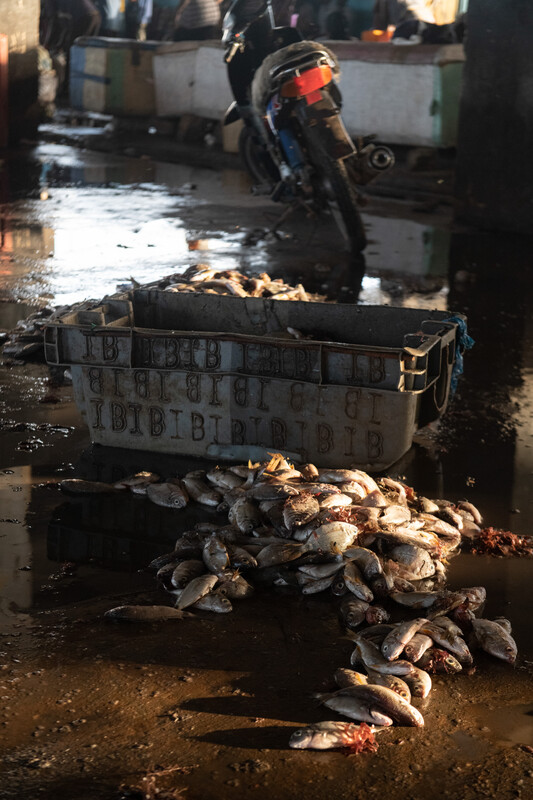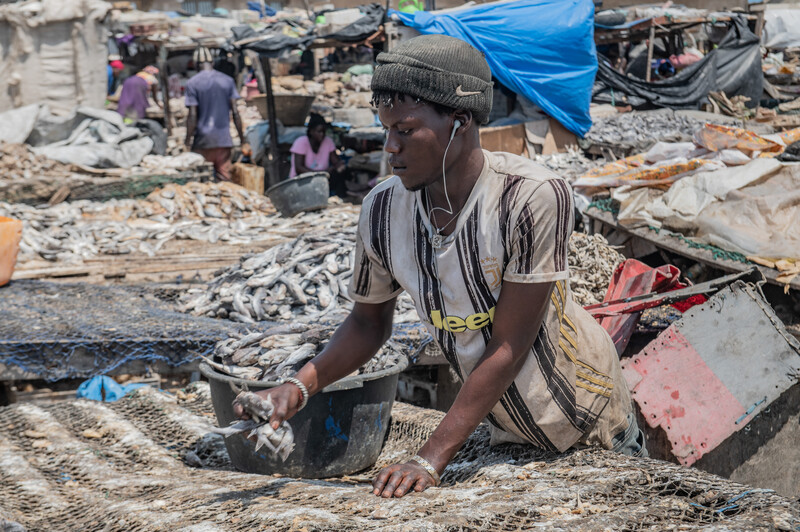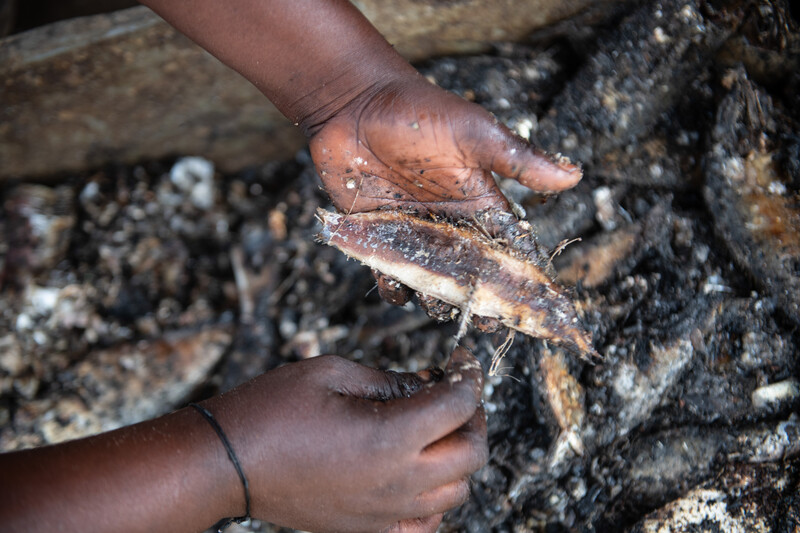Fed to feed
© Fabrice Monteirotext ©Fabian Federl (full text available on request)
Aquaculture is supposed to save the oceans from overfishing. It works, too, for Europe. But in Senegal, it leads to a paradox: people lack fish because it is fed to our fish.
Fish farming is the fastest growing segment of global food production, with 160 billion euros in sales. Half of the fish consumed worldwide comes from aquaculture. Aquaculture is seen by conservation organizations as the solution to dying oceans. Those who farm do not catch endangered species, cannot overfish, and there is no bycatch. Unlike deep-sea fishing, fish farming can be regulated and controlled. It is more environmentally friendly than animal breeding; the production of one kilo of fish requires half as much CO2 as that of pork. Farms in the global south are a significant employer, far from cities, often for women. The NGO Nature Conservancy demands: By 2050, humanity would have to get the vast majority of its animal protein from farmed fish.
But farmed fish must also be fed. Around 70 percent of operating costs in aquaculture go on animal feed. And there is only one commercially viable feed source: fishmeal.
Fishmeal is dried, ground fish waste - bones, heads, bycatch from shellfish. Or it is supposed to be. The process of separating the "good" fish from the "bad" fish waste is complicated. That's why factories now often grind complete, edible fish. Four kilos of fish thus become one kilo of fish meal. Today, a quarter of all fish caught worldwide end up as fish meal. The powder is fed to farmed fish, in large quantities. For every kilo of aquaculture fish, farms consume several kilos of fishmeal. Salmon, for example, eat fifteen times their body weight in wild-caught, ground fish during their farming season. Which leads to the absurd bottom line: A fish farm consumes more fish than it produces.
On European coasts, fish meal production is no longer profitable. For this reason, a kind of outsourced fishmeal industry for European farmed fish has been developing off the coast of West Africa. Trawlers from Europe catch fish here that are traditionally eaten by the local population, process them into fishmeal on the West African coast, export them to Norway, feed salmon there, and sell them in European supermarkets - with certificates for sustainability, against overfishing, for the preservation of the oceans.
Today, Senegal is the most severely affected. Fishing is the country's largest industry. And 70 percent of the population's protein needs come from fish. The small sardinella caught there are vital to the survival of some 600,000 people who live off traditional fishing. In the past three years, eight fishmeal factories have set up along Senegal's coast, the latest being one run by Barna, a major Spanish fishing company. Many traditional fishermen have reoriented themselves in recent years. Instead of fishing for themselves and their community, they fish for the big buyer: the fishmeal factory.
click to view the complete set of images in the archive
